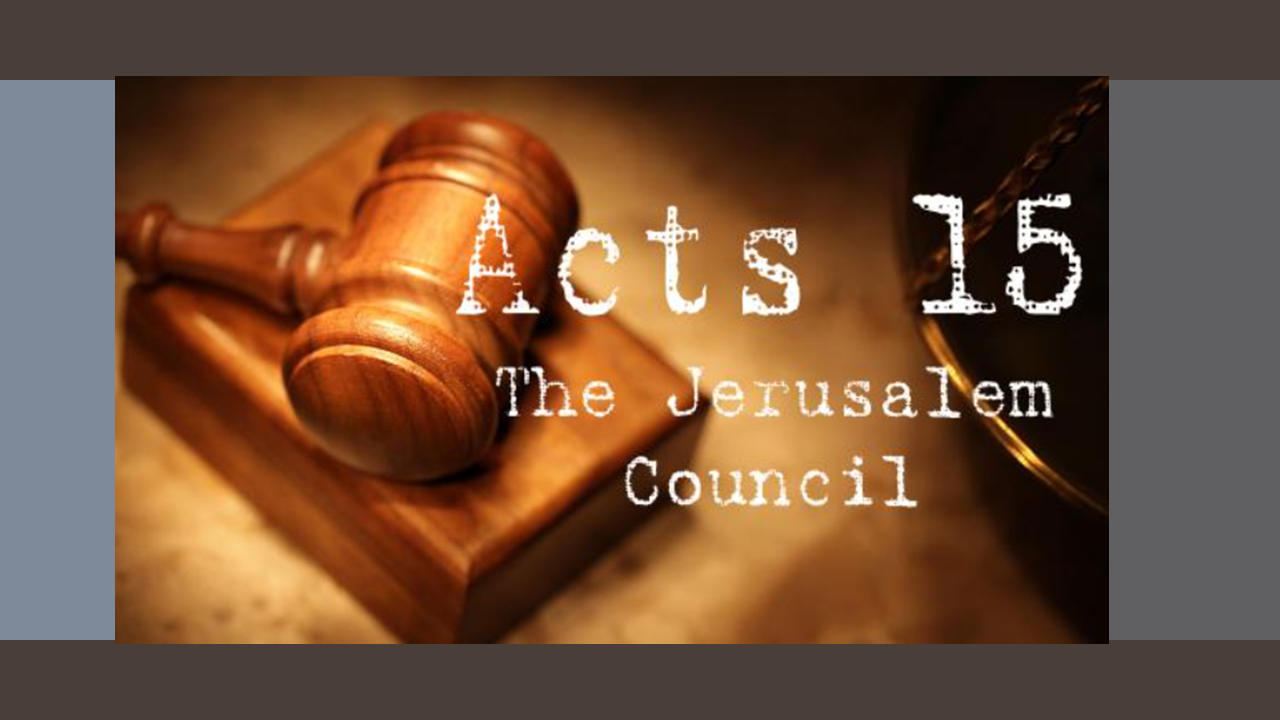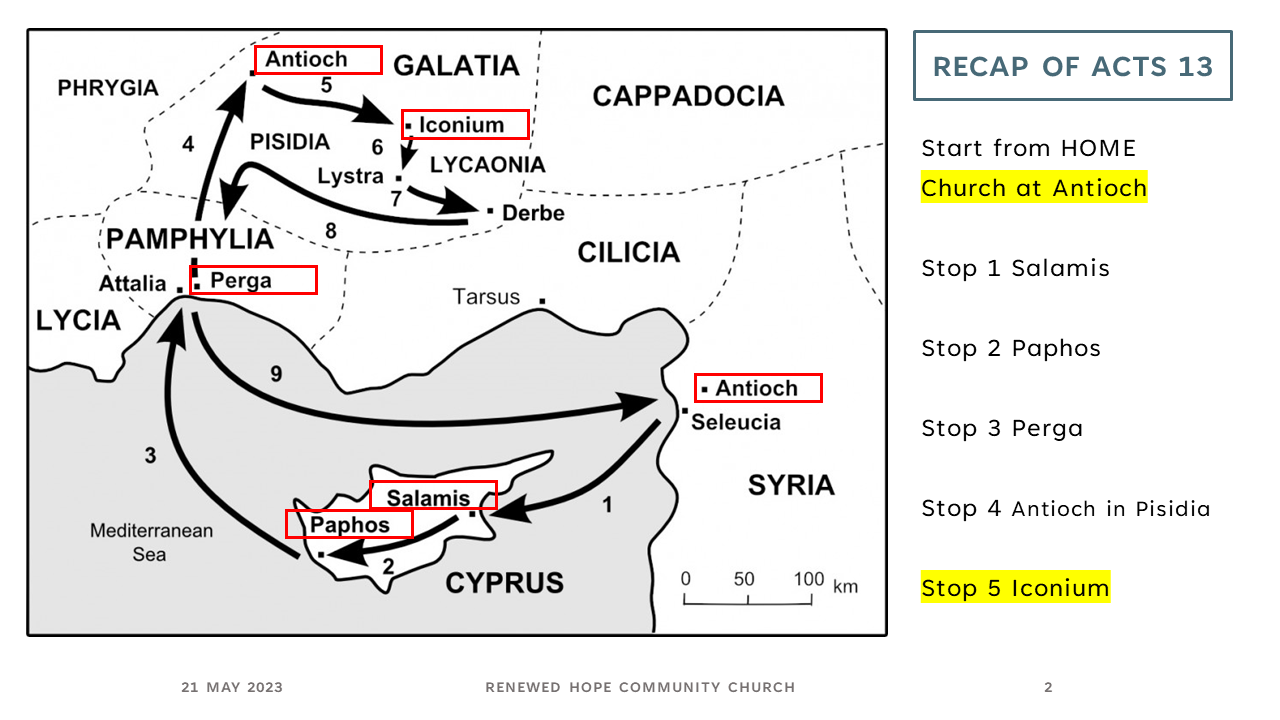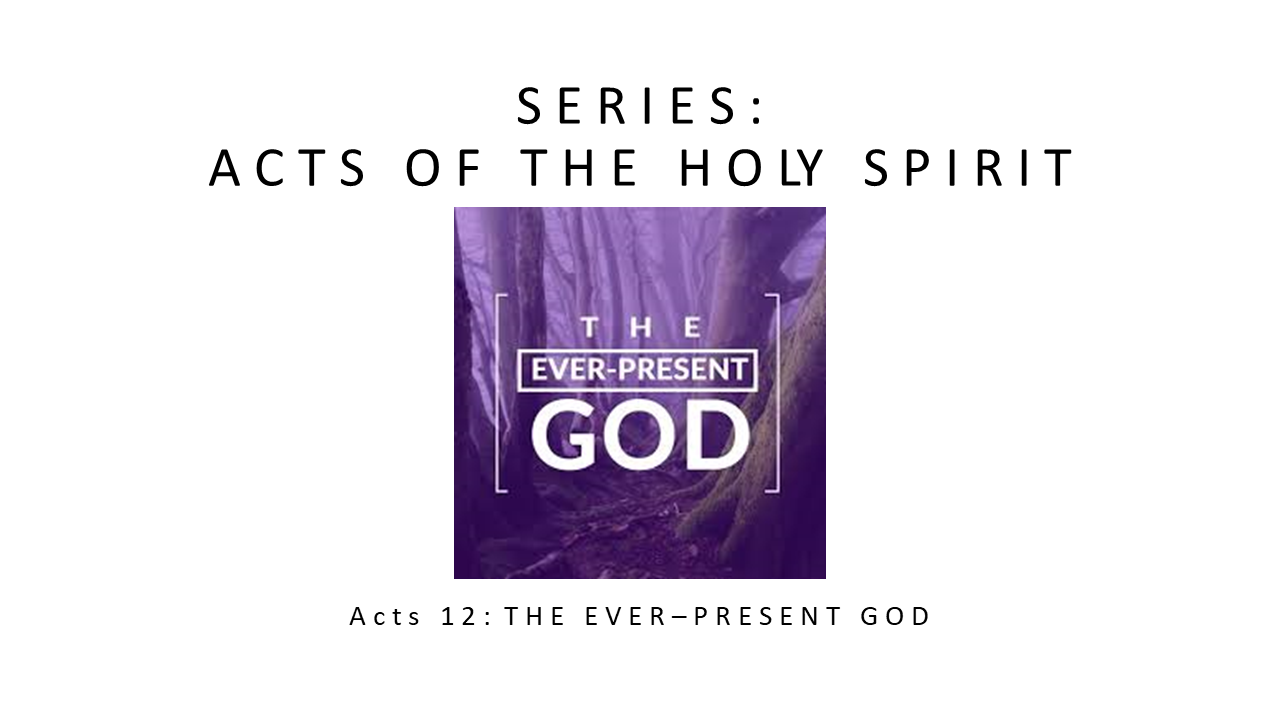
Acts 20
When the uproar had ended, Paul sent for the disciples and, after encouraging them, said goodbye and set out for Macedonia. 2 He traveled through that area, speaking many words of encouragement to the people, and finally arrived in Greece, 3 where he stayed three months. Because some Jews had plotted against him just as he was about to sail for Syria, he decided to go back through Macedonia. 4 He was accompanied by Sopater son of Pyrrhus from Berea, Aristarchus and Secundus from Thessalonica, Gaius from Derbe, Timothy also, and Tychicus and Trophimus from the province of Asia. 5 These men went on ahead and waited for us at Troas. 6 But we sailed from Philippi after the Festival of Unleavened Bread, and five days later joined the others at Troas, where we stayed seven days.
7 On the first day of the week we came together to break bread. Paul spoke to the people and, because he intended to leave the next day, kept on talking until midnight. 8 There were many lamps in the upstairs room where we were meeting. 9 Seated in a window was a young man named Eutychus, who was sinking into a deep sleep as Paul talked on and on. When he was sound asleep, he fell to the ground from the third story and was picked up dead. 10 Paul went down, threw himself on the young man and put his arms around him. “Don’t be alarmed,” he said. “He’s alive!” 11 Then he went upstairs again and broke bread and ate. After talking until daylight, he left. 12 The people took the young man home alive and were greatly comforted.
13 We went on ahead to the ship and sailed for Assos, where we were going to take Paul aboard. He had made this arrangement because he was going there on foot. 14 When he met us at Assos, we took him aboard and went on to Mitylene. 15 The next day we set sail from there and arrived off Chios. The day after that we crossed over to Samos, and on the following day arrived at Miletus. 16 Paul had decided to sail past Ephesus to avoid spending time in the province of Asia, for he was in a hurry to reach Jerusalem, if possible, by the day of Pentecost.
17 From Miletus, Paul sent to Ephesus for the elders of the church. 18 When they arrived, he said to them: “You know how I lived the whole time I was with you, from the first day I came into the province of Asia. 19 I served the Lord with great humility and with tears and in the midst of severe testing by the plots of my Jewish opponents. 20 You know that I have not hesitated to preach anything that would be helpful to you but have taught you publicly and from house to house. 21 I have declared to both Jews and Greeks that they must turn to God in repentance and have faith in our Lord Jesus.
22 “And now, compelled by the Spirit, I am going to Jerusalem, not knowing what will happen to me there. 23 I only know that in every city the Holy Spirit warns me that prison and hardships are facing me. 24 However, I consider my life worth nothing to me; my only aim is to finish the race and complete the task the Lord Jesus has given me—the task of testifying to the good news of God’s grace.
25 “Now I know that none of you among whom I have gone about preaching the kingdom will ever see me again. 26 Therefore, I declare to you today that I am innocent of the blood of any of you. 27 For I have not hesitated to proclaim to you the whole will of God. 28 Keep watch over yourselves and all the flock of which the Holy Spirit has made you overseers. Be shepherds of the church of God,[a] which he bought with his own blood.[b] 29 I know that after I leave, savage wolves will come in among you and will not spare the flock. 30 Even from your own number men will arise and distort the truth in order to draw away disciples after them. 31 So be on your guard! Remember that for three years I never stopped warning each of you night and day with tears.
32 “Now I commit you to God and to the word of his grace, which can build you up and give you an inheritance among all those who are sanctified. 33 I have not coveted anyone’s silver or gold or clothing. 34 You yourselves know that these hands of mine have supplied my own needs and the needs of my companions. 35 In everything I did, I showed you that by this kind of hard work we must help the weak, remembering the words the Lord Jesus himself said: ‘It is more blessed to give than to receive.’ ”
36 When Paul had finished speaking, he knelt down with all of them and prayed. 37 They all wept as they embraced him and kissed him. 38 What grieved them most was his statement that they would never see his face again. Then they accompanied him to the ship.
___________________________________________________________________________
As we saw last week in the book of Acts 19, there was a riot because people who would sell idols were at a loss and they hated Paul. There was a lot commotion. However, the city clerk quieted the crowd and asked them to settle the issue in the legal assembly. The setting is Ephesus.
Now Paul is on his way to Jerusalem for the day of the Pentecost. So before we begin, I have a short instance to share from the diary of John Wesley.
Who was John Wesley?
John Wesley was an English cleric, theologian, and evangelist who was a leader of a revival movement within the Church of England known as Methodism. The societies he founded became the dominant form of the independent Methodist movement that continues to this day.
From the Diary of John Wesley.
Sunday, A.M., May 5 Preached in St. Anne’s. Was asked not to come back anymore.
Sunday, P.M., May 5 Preached in St. John’s. Deacons said “Get out and stay out.”
Sunday, A.M., May 12 Preached in St. Jude’s. Can’t go back there, either.
Sunday, A.M., May 19 Preached in St. Somebody Else’s. Deacons called special meeting and said I couldn’t return.
Sunday, P.M., May 19 Preached on street. Kicked off street.
Sunday, A.M., May 26 Preached in meadow. Chased out of meadow as bull was turned loose during service.
Sunday, A.M., June 2 Preached out at the edge of town. Kicked off the highway.
Sunday, P.M., June 2 Afternoon, preached in a pasture. Ten thousand people came out to hear me.
Can we see a similarity here with what Paul was doing. Today, we see from Acts 20, that ‘When the uproar had ended, Paul sent for the disciples and, after encouraging them, said goodbye and set out for Macedonia.’ We see that Paul travelled through that area, speaking many words of encouragement to the people, and finally arrived in Greece, 3 where he stayed three months.
The word ‘Accompanied’ shows that Paul had many friends. He had people to go before him. Although he was unable to go to Troas immediately but his friends were able to go. He joined them later
Because some Jews had plotted against him just as he was about to sail for Syria, he decided to go back through Macedonia. 4 He was accompanied by Sopater son of Pyrrhus from Berea, Aristarchus and Secundus from Thessalonica, Gaius from Derbe, Timothy also, and Tychicus and Trophimus from the province of Asia. 5 These men went on ahead and waited for us at Troas. 6 But we sailed from Philippi after the Festival of Unleavened Bread, and five days later joined the others at Troas, where we stayed seven days.
This book is written by Luke, and when we read in verse 6 ‘WE’ sailed means, Luke was by default with them.
In the first few verses we can learn a few lessons from Paul’s Journey.
Team Effort: But we sailed from Philippi after the Festival of Unleavened Bread, and five days later joined the others at Troas, where we stayed seven days. They always travelled together. Submitted to each other.
Unity in mission: He was accompanied by Sopater son of Pyrrhus from Berea, Aristarchus and Secundus from Thessalonica, Gaius from Derbe, Timothy also, and Tychicus and Trophimus from the province of Asia. There was unity in them. Without unity, no task would be accomplished.
Change of Plans: submitting to God’s plans: Because some Jews had plotted against him just as he was about to sail for Syria, he decided to go back through Macedonia. Paul was quite flexible in his approach. He kept room for change in event or flow of his plan. He built his faith in God’s direction moreover his humanly wisdom.
Paul was an enthusiastic disciple. Even after being attacked, hurt, and misunderstood, he doesn’t stop. What is this passion that drives him? Is it the same passion that drives us? He wanted to minister to people throughout the night because he was leaving the next day and we don’t even know whether he would get rest in the journey.
So with all this ups and downs, Paul landed in Troas in Ephesus. He wanted to emphasize, encourage and assure them of the truth.
7 On the first day of the week we came together to break bread. Paul spoke to the people and, because he intended to leave the next day, kept on talking until midnight. 8 There were many lamps in the upstairs room where we were meeting. 9 Seated in a window was a young man named Eutychus, who was sinking into a deep sleep as Paul talked on and on. When he was sound asleep, he fell to the ground from the third story and was picked up dead. 10 Paul went down, threw himself on the young man and put his arms around him. “Don’t be alarmed,” he said. “He’s alive!” 11 Then he went upstairs again and broke bread and ate. After talking until daylight, he left. 12 The people took the young man home alive and were greatly comforted.
Yes and in the process of speaking, a young boy falls and dies. However, that also doesn’t stop him. He raises him from the dead and continues with his conversations. I think Paul made the plans but God added more adventure to his plans.
There is a strange liking that people had towards Paul. They were so eager to listen to him. There is no mention of complain or grumble or any kind of discomfort that they felt. They listened to him all night.
There was never a moment when Paul would take a break and say, I think I had enough or there wasn’t this fear of unknown. His confidence and trust were in God. He knew what he was doing and he was focused on his aim and goal. Be it a riot, be it a plot of someone, or be it someone falling dead in the middle of nowhere. Paul was too passionate to be deterred of his plans.
Lessons that we learn from Paul from these few verses:
- Planning : He knew that he could be arrested, attacked or barred from meeting the new believers any time, so he made the best of his time. He overcame all practical challenges. He did not sulk or even go back. We have time, but how do we use it? Does our mission work depend on our moods? Our circumstances, our finances, travel, is situational or is it convenience?
Q Was it easy to raise a boy from the dead? When one of our loved ones is sick, we spend the whole night and day worrying, crying and hunting for doctors, but when we know that my time is ticking, I may not have much time to do God’s work, I will start praying for my situations, as we take that first step of faith, God works. Paul’s agenda was very clear. Tell me how have you scheduled God’s agenda in our daily routine? What did we do yesterday? So yesterday it was raining and so couldn’t do much or is my statement like, yesterday, I was too tired or I was angry or I was too happy or I was …. You can fill in the blank.
God is waiting for us to come back to him and be channelized by him. It’s not like he doesn’t want us to rest, or take a break but I believe planning can help us to be aligned to God’s goal for us. Otherwise, it’ll be a cycle of not today!
- Be Prepared for the Unplanned:
Previous point was plan but I would also say, that be prepared for the unplanned. There are a lot of instances when our plans don’t seem to work. However, leave space and room for God’s intervention. Our life is unpredictable. God will show up in different ways to stir up our faith and character. I believe unplanned events also build up our character. How do I behave in a certain situation? How is my attitude when things don’t work my way? The Jews thought of a set way the Messiah would appear and redeem them, but God’s plan was the sacrifice that will redeem the entire mankind. God’s wisdom is beyond mine and therefore, give space for Him and His ways.
Paul had not planned it but Seated in a window was a young man named Eutychus, who was sinking into a deep sleep as Paul talked on and on. When he was sound asleep, he fell to the ground from the third story and was picked up dead.
Also, Paul wasn’t so insensitive, that he would leave the matter just as it is. He went and prayed. Raised the boy from the dead like Elijah, it added up to the faith that he was trying to build in the people. God made it more adventurous and livelier.
Paul did not have all the comfort in life that he would make such journeys. We see in the next few verses, that his aim was to listen and do what the Holy Spirit wants him to do.
13 We went on ahead to the ship and sailed for Assos, where we were going to take Paul aboard. He had made this arrangement because he was going there on foot. 14 When he met us at Assos, we took him aboard and went on to Mitylene. 15 The next day we set sail from there and arrived off Chios. The day after that we crossed over to Samos, and on the following day arrived at Miletus. 16 Paul had decided to sail past Ephesus to avoid spending time in the province of Asia, for he was in a hurry to reach Jerusalem, if possible, by the day of Pentecost.
The above verse shows Paul’s foresightedness.
Reach Jerusalem for the day of Pentecost, what does this show, he was almost in a hurry as he did not want o miss the summons of the Holy Spirit. Let’s listen. Also, he didn’t want to leave any work unfinished. He wasnot sure whether he would meet these people again and so he wanted to wrap up everything on hopeful and promising note. Whenever people are on their final journey of life, all that they speak is with experience, it’s with passion and also wisdom. We can add one more aspect, and that is he spoke with the Holy Spirit to the people of Ephesus. The same words speak to us the people of Panvel, of Renewed Hope Community.
17 From Miletus, Paul sent to Ephesus for the elders of the church. 18 When they arrived, he said to them: “You know how I lived the whole time I was with you, from the first day I came into the province of Asia. 19 I served the Lord with great humility and with tears and in the midst of severe testing by the plots of my Jewish opponents. 20 You know that I have not hesitated to preach anything that would be helpful to you but have taught you publicly and from house to house. 21 I have declared to both Jews and Greeks that they must turn to God in repentance and have faith in our Lord Jesus.
22 “And now, compelled by the Spirit, I am going to Jerusalem, not knowing what will happen to me there. 23 I only know that in every city the Holy Spirit warns me that prison and hardships are facing me. 24 However, I consider my life worth nothing to me; my only aim is to finish the race and complete the task the Lord Jesus has given me—the task of testifying to the good news of God’s grace.
25 “Now I know that none of you among whom I have gone about preaching the kingdom will ever see me again. 26 Therefore, I declare to you today that I am innocent of the blood of any of you. 27 For I have not hesitated to proclaim to you the whole will of God. 28 Keep watch over yourselves and all the flock of which the Holy Spirit has made you overseers. Be shepherds of the church of God,[a] which he bought with his own blood.[b] 29 I know that after I leave, savage wolves will come in among you and will not spare the flock. 30 Even from your own number men will arise and distort the truth in order to draw away disciples after them. 31 So be on your guard! Remember that for three years I never stopped warning each of you night and day with tears.
32 “Now I commit you to God and to the word of his grace, which can build you up and give you an inheritance among all those who are sanctified. 33 I have not coveted anyone’s silver or gold or clothing. 34 You yourselves know that these hands of mine have supplied my own needs and the needs of my companions. 35 In everything I did, I showed you that by this kind of hard work we must help the weak, remembering the words the Lord Jesus himself said: ‘It is more blessed to give than to receive.’ ”
Paul said I have run the race I am reaching for the prize.
6 For I am already being poured out like a drink offering, and the time for my departure is near. 7 I have fought the good fight, I have finished the race, I have kept the faith. 8 Now there is in store for me the crown of righteousness, which the Lord, the righteous Judge, will award to me on that day—and not only to me, but also to all who have longed for his appearing. 2 Timothy 4:6 – 8.
What am I running for?
You may say Sandra you don’t understand, I have an uncommon situation. Or you could say that I am not ready, and the excuses or the reasoning goes on
Today, if we had to face God because that’s what our ultimate destiny, what am I going to say. I was too busy.
Because of what Jesus did we’ll be questioned more. 26 For if we go on sinning deliberately after receiving the knowledge of the truth, there no longer remains a sacrifice for sins, 27 but a fearful expectation of judgment, and a fury of fire that will consume the adversaries. Hebrews 10:26-27
I am not here to put fear or guilt in you but just trying to start a thought process that we need to wake up from our self centredness. The first step to it is as follows:
Can we ask God to put a passion in our hearts for one thing that he wants us to do. (Ask to pray two by two)
Paul encountered God on the road to Damascus
Paul started with learning from the apostles,
He tagged along with Barnabas
Later he ventured out by himself.
He tagged Timothy with him
It all starts small. It starts with an encounter, a thirst to learn, a hunger to know more.
Why do I need to be like Paul?
Why can’t I live simply?
God wants his people to make a change. He wants everyone to hear his promise and that he is the saviour and Messiah. He has come to redeem the world.
Making a difference in the lives of people.
14 “You are the light of the world. A town built on a hill cannot be hidden. 15 Neither do people light a lamp and put it under a bowl. Instead, they put it on its stand, and it gives light to everyone in the house. 16 In the same way, let your light shine before others, that they may see your good deeds and glorify your Father in heaven. Mat 5: 14 – 16
The question to your Why?
If you don’t make that change then who will?
Story of talents
14 “For it will be like a man going on a journey, who called his servants[a] and entrusted to them his property. 15 To one he gave five talents,[b] to another two, to another one, to each according to his ability. Then he went away. 16 He who had received the five talents went at once and traded with them, and he made five talents more. 17 So also he who had the two talents made two talents more. 18 But he who had received the one talent went and dug in the ground and hid his master’s money. 19 Now after a long time the master of those servants came and settled accounts with them. 20 And he who had received the five talents came forward, bringing five talents more, saying, ‘Master, you delivered to me five talents; here, I have made five talents more.’ 21 His master said to him, ‘Well done, good and faithful servant.[c] You have been faithful over a little; I will set you over much. Enter into the joy of your master.’ 22 And he also who had the two talents came forward, saying, ‘Master, you delivered to me two talents; here, I have made two talents more.’ 23 His master said to him, ‘Well done, good and faithful servant. You have been faithful over a little; I will set you over much. Enter into the joy of your master.’ 24 He also who had received the one talent came forward, saying, ‘Master, I knew you to be a hard man, reaping where you did not sow, and gathering where you scattered no seed, 25 so I was afraid, and I went and hid your talent in the ground. Here, you have what is yours.’ 26 But his master answered him, ‘You wicked and slothful servant! You knew that I reap where I have not sown and gather where I scattered no seed? 27 Then you ought to have invested my money with the bankers, and at my coming I should have received what was my own with interest. 28 So take the talent from him and give it to him who has the ten talents. 29 For to everyone who has will more be given, and he will have an abundance. But from the one who has not, even what he has will be taken away. 30 And cast the worthless servant into the outer darkness. In that place there will be weeping and gnashing of teeth.’ Matthew 25:14-30
Don’t we want to hear these words: My good and faithful servant, you have run the good race, you have fought the good fight, come now and take over the reward.
Sandra wife of Virjil .The Renewed Hope Community is situated in the heart of the city between Old and New Panvel. We can confidently share that Renewed Hope Community is a Church in Kamothe, Church in Khandeshwar, Church in Khanda Colony, Church in Karanjade, Church in Panvel, Church in New Panvel because we are centrally located and these places surround our church Venue.










